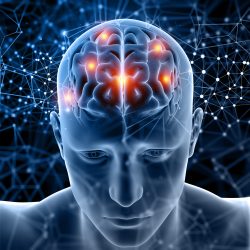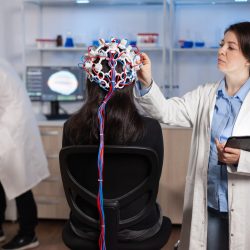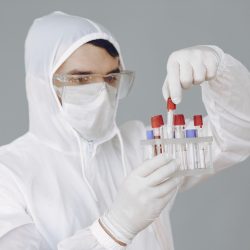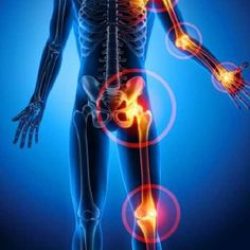11111
Public Health - Tracks
- Home
- Public Health - Tracks

Mental Health Nursing
Mental health nursing focuses on providing care to individuals with mental health disorders, such as depression, anxiety, schizophrenia, and substance abuse issues. Nurses collaborate with psychiatrists and other professionals to create personalized care plans aimed at promoting recovery and managing symptoms. They offer therapeutic support, assist with treatment adherence, and provide education to patients and their families.
Infection Control & Prevention
Infection control and prevention in healthcare focuses on reducing the spread of infectious diseases by implementing strategies to prevent healthcare-associated infections (HAIs). Key measures include proper hand hygiene, use of personal protective equipment (PPE), sterilization of instruments, and isolation for contagious patients. It also involves monitoring outbreaks, educating staff on best practices, and maintaining a clean environment.


Palliative Care
Palliative care focuses on relieving symptoms, pain, and stress from serious illnesses, prioritizing quality of life over curative treatments. It addresses physical, emotional, and spiritual well-being, and is often provided alongside curative care. A team of healthcare professionals, including doctors, nurses, and social workers, works together to create personalized care plans. This care is available to patients at any age or stage of illness, emphasizing dignity, comfort, and support for both patients and their families.
Pediatric Nursing
Pediatric nursing focuses on providing care to infants, children, and adolescents, addressing their unique medical, emotional, and developmental needs. Pediatric nurses play a key role in preventing, diagnosing, and treating illnesses, from routine check-ups to managing chronic conditions. They must possess strong communication skills to interact with both children and their families, offering support and education. Pediatric nurses also promote preventive care and advocate for children’s health, ensuring age-appropriate treatments.


Neurodiversity
Nursing informatics combines nursing practice with information technology to enhance healthcare outcomes. It uses data systems, electronic health records (EHRs), and technology to improve care delivery, patient safety, and healthcare efficiency. Nursing informatics professionals ensure accurate information is available to healthcare providers and focus on training staff, developing evidence-based protocols, and optimizing healthcare systems.
Community Nursing
Community nursing focuses on providing healthcare services within a community, promoting health, preventing diseases, and managing chronic conditions for people of all ages. Nurses work in settings like schools, homes, and clinics, tailoring care to the community’s needs. They collaborate with healthcare providers and organizations to address public health issues such as immunization and health education.


Autism
Autism, or Autism Spectrum Disorder (ASD), is a neurodevelopmental disorder characterized by challenges in social communication, interaction, and repetitive behaviors. Symptoms usually appear in early childhood and vary widely in severity. People with autism have unique strengths and abilities, experiencing the condition differently. Early diagnosis and intervention can significantly improve outcomes for those with autism.
Critical Care Nursing
Critical care nursing involves providing specialized care to patients with life-threatening or severe health conditions, often in intensive care units (ICUs). Nurses in this field monitor vital signs, manage complex medical equipment, and administer treatments to stabilize patients. They work closely with doctors and other healthcare professionals to develop care plans tailored to the patient’s needs. Critical care nurses are skilled in managing emergencies, pain relief, and supporting patients during recovery.


Genetic Disorders
Genetic disorders are health conditions caused by DNA changes or mutations, which can be inherited or occur spontaneously. These disorders can impact physical and mental health, depending on the genes involved. Examples include cystic fibrosis, sickle cell anemia, and Down syndrome. Early diagnosis and genetic counseling can help manage these conditions and offer support to affected individuals and their families.
Geriatric Nursing
Geriatric nursing focuses on caring for older adults, addressing their unique physical, emotional, and social needs. Nurses in this field manage chronic conditions, promote healthy aging, and improve the quality of life for elderly patients. They work in hospitals, nursing homes, assisted living, and home care, handling conditions like dementia, arthritis, and heart disease. Geriatric nurses advocate for patients’ independence and dignity while supporting both patients and families.


Epidemiology
Epidemiology is the study of how diseases spread and impact populations. It involves understanding the patterns, causes, and effects of health conditions in defined groups. Epidemiologists analyze data to identify disease risk factors and targets for preventive healthcare. This field is essential for public health, as it aids in developing strategies to control and prevent diseases, ultimately enhancing community health.
Chronic Disease Management
Chronic disease management involves the ongoing care of individuals with long-term conditions like diabetes, heart disease, and hypertension. It focuses on improving quality of life through symptom management, lifestyle changes, education, and regular monitoring. Healthcare providers work together to create personalized care plans addressing both medical and psychological needs. This approach empowers patients to take an active role in their care, ensuring adherence to treatment and informed decision-making.


Radiology Nursing
Radiology nursing focuses on caring for patients undergoing diagnostic imaging procedures like X-rays, MRIs, and CT scans. Nurses ensure patient safety, comfort, and education throughout the process, monitoring vital signs, assisting with positioning, and managing reactions to contrast agents. They collaborate with radiologists and other healthcare professionals to prepare patients and provide post-procedural care.
Dentistry
Dentistry focuses on diagnosing, preventing, and treating diseases of the oral cavity, including teeth and gums. Dentists maintain oral health through check-ups, cleanings, and treatments like fillings, crowns, and root canals. Good oral hygiene and regular dental visits are essential for preventing issues and maintaining overall health.


Oncology & Cancer Care
Oncology nursing focuses on caring for patients diagnosed with cancer, managing their physical, emotional, and psychological needs throughout treatment. Oncology nurses administer chemotherapy, manage side effects, provide pain relief, and offer support during complex treatment regimens. They also educate patients and families about cancer, treatment options, and self-care. In addition to clinical care, oncology nurses provide emotional support, advocate for patients, and ensure comprehensive, compassionate care.
Pain Management
Pain management refers to the process of providing medical care that alleviates or reduces the intensity of pain. It involves various techniques, including medications, physical therapy, psychological support, and alternative therapies like acupuncture. The goal is to improve a person’s quality of life by addressing both acute and chronic pain conditions. Effective pain management often requires a personalized approach, combining multiple treatments for optimal relief.


Emergency & Trauma Nursing
Emergency and trauma nursing focuses on providing urgent care to patients with acute medical conditions or injuries in high-pressure environments like emergency departments and trauma units. Nurses quickly assess, stabilize, and treat patients in critical situations, managing a wide range of emergencies such as injuries, heart attacks, and strokes. They provide life-saving interventions, monitor vital signs, and collaborate with healthcare teams for effective care.
Neurological Nursing
Neurological nursing focuses on the care of patients with neurological disorders such as stroke, epilepsy, and Parkinson’s disease. Nurses in this field assess and manage patients’ neurological health, addressing both physical and emotional challenges. They assist in symptom management, support treatment, and educate patients and families about the condition. Neurological nurses collaborate with neurologists to develop personalized care plans, ensuring effective treatment.


Neonatal Nursing
Neonatal nursing focuses on the care of newborn infants, especially those who are premature or critically ill. Neonatal nurses provide round-the-clock care in neonatal intensive care units (NICUs), assisting with breathing, feeding, and temperature regulation. They monitor vital signs, administer medications, and collaborate with neonatologists to manage conditions like birth defects and infections. In addition to clinical care, neonatal nurses offer emotional support and education to parents.
Reproductive Health
Sexual and reproductive health includes family planning, contraception, STIs, maternal health, and fertility. Access to comprehensive healthcare and education empowers individuals to make informed decisions about their bodies and relationships. Promoting sexual and reproductive health is essential for well-being and gender equality, fostering healthier communities.


Attention Deficit Hyperactivity Disorder
Attention Deficit Hyperactivity Disorder (ADHD) is a neurodevelopmental disorder marked by inattention, hyperactivity, and impulsivity. These symptoms can impact focus, instruction-following, and behavior control. Commonly diagnosed in childhood, ADHD can persist into adulthood. Treatment often involves behavioral therapies, medications, and lifestyle changes to manage symptoms and improve functioning.
